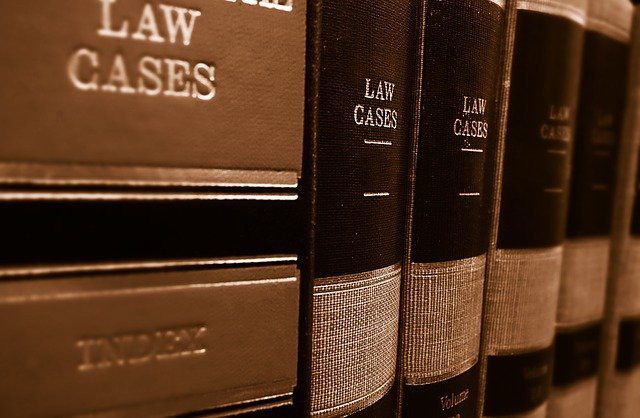3 Issues a Probate Attorney Handles

Probate refers to the legal process involving distributing a deceased person’s (decedent’s) assets, settling their debts, and carrying out final instructions. A probate attorney handles estate planning matters and advises an individual who administers a decedent’s estate.
The probate process can be complex, lengthy, and even contentious among surviving family members. Having a probate lawyer to count on can ensure proper estate management and consideration of all legal concerns. Here are three key issues that a probate attorney typically handles:
Estate Administration
A probate attorney can assist an executor with administrating an estate. They can also work with an appointed representative if the Will does not identify an executor.
The probate attorney helps an administrator navigate the legal requirements and ensures that responsibilities are carried out according to applicable laws and the decedent’s wishes. During estate administration, the probate attorney typically performs or advises on the following tasks:
- Will Validation: The attorney reviews the decedent’s Will to ensure its validity and legal compliance with jurisdictional laws. If anyone raises concerns about the Will’s validity, such as allegations of undue influence or lack of capacity, the attorney will usually handle those disputes or contestations.
- Document Filing: The attorney helps prepare and file necessary legal documents with the probate court. Paperwork typically includes the petition for probate, copy of the death certificate, last Will and testament, asset inventory, and final accounting. This documentation provides a comprehensive record of the estate’s assets, debts, and distribution.
- Debt Settlement:. The attorney also reviews debt claims, helps settle valid debts and liabilities, and ensures proper distribution of available assets for payment.
- Asset Distribution: The attorney helps the executor identify, assess, and distribute the decedent’s assets to the intended beneficiaries according to the Will’s terms. If the decedent did not leave a Will, the lawyer will ensure compliance with state laws of intestacy, which determine how to distribute the estate.
Estate Planning
Probate attorneys can provide valuable assistance in estate planning, which occurs before a person’s death. Estate planning typically involves preparing legal documents to manage assets and outline the distribution of an individual’s estate upon their passing.
By engaging a local Will or estate lawyer in this process, individuals can adequately protect their assets. Proper estate planning also ensures clear articulation of final wishes and the streamlining of the probate process for surviving family members. Probate attorneys provide the following estate planning services:
- Will Drafting: A probate attorney helps their client draft a legally sound Will that reflects their final wishes. A Will states the terms for asset distribution, appointment of guardians for minor children or incapacitated adults, and other important matters.
- Trust Creation and Administration: A trust is an effective means for enabling the seamless transfer of assets. Many people also create trusts to minimize estate taxes and protect beneficiaries with specific needs. Probate attorneys can help create revocable living trusts, special needs trusts, and other such documents.
Power of Attorney and Healthcare Directives: Probate attorneys assist individuals in preparing for a time when they can no longer make their own medical or financial decisions. A lawyer can create a durable power of attorney and healthcare directives during estate planning. These designations identify one or more trusted individuals to make crucial decisions on behalf of a person should they become incapacitated.
Estate Litigation and Disputes
Conflicts may arise over an estate’s management during probate. Many probate attorneys are experienced in representing clients involved in these disputes, and they can litigate these cases in court when necessary. Common issues that may require legal intervention include
- Will Contests: A probate attorney may represent disinherited heirs or potential beneficiaries not listed on a Will. Some clients may challenge the Will’s validity. Others might assert that the decedent was subjected to undue influence or fraud or lacked mental competency when they drafted the Will.
- Breach of Fiduciary Duty: A person with a fiduciary duty is responsible for acting in the decedent’s best interests. An executor may fail in their fiduciary duty if they divert funds for personal use, favor particular beneficiaries over others, or do anything else that violates the decedent’s trust. In such cases, a probate attorney can advocate for beneficiaries or other affected parties who believe the executor or representative has compromised or mishandled their interests.
- Estate Mismanagement: A probate attorney can investigate and pursue legal remedies when their client makes allegations of estate mismanagement or improper handling by the executor or personal representative.
- Guardianship Disputes: Guardianship and conservatorship disputes also fall under the purview of probate attorneys. A client might challenge the appointment of a guardian or raise concerns about their care of an incapacitated individual or minor child.
If you have been delegated as an executor of an estate, need help with estate planning, or are in the middle of an estate-related dispute, a probate attorney with Donnellon, Donnellon & Miller can advocate for you. Their expertise can ensure the smooth transfer of assets, compliance with legal requirements, and conflict resolution during any phase of the probate process.
